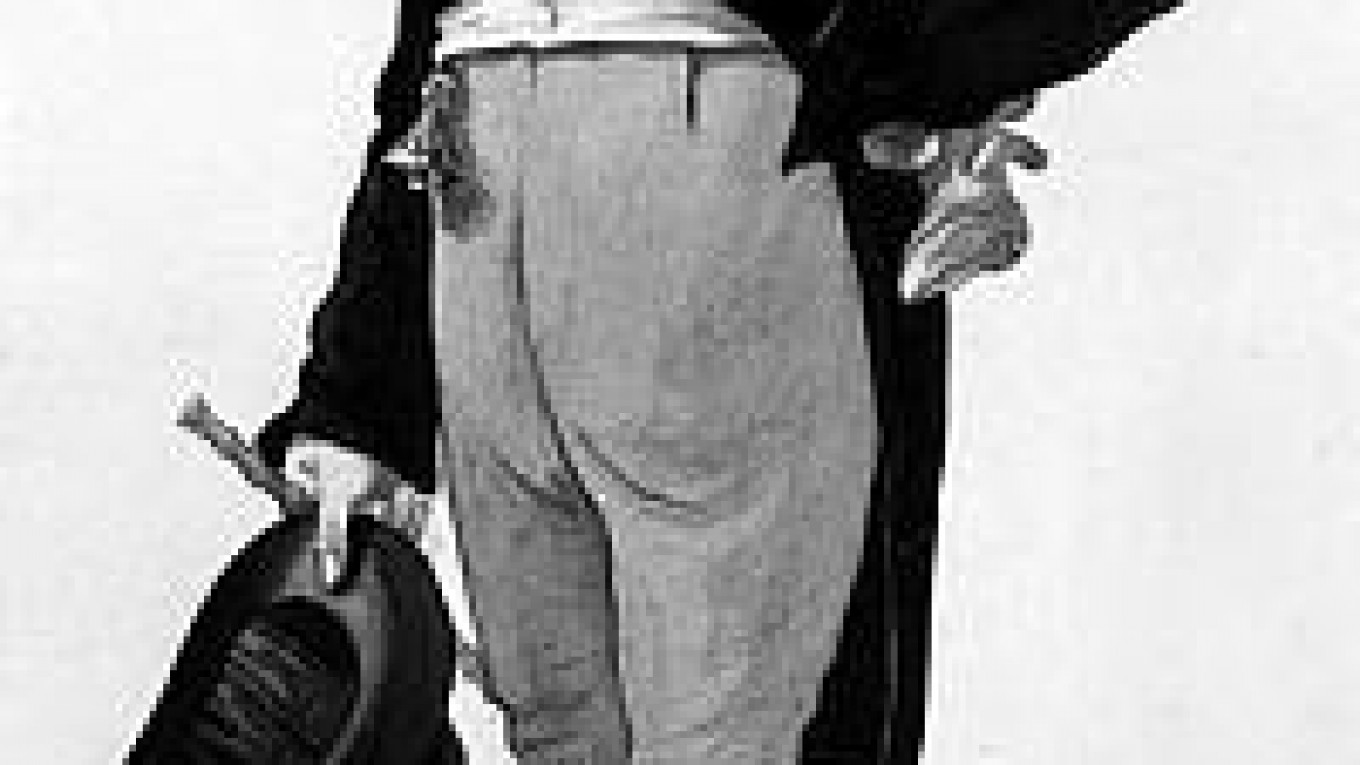But, according to an exhibit by the British Council, contemporary men's fashion has its roots, at least in part, in the dandy's credo of fastidious, flawless chic.
"The all importance of clothes has sprung up in the intellect of the dandy, without effort, like an instinct of genius," said 19th-century essayist and philosopher Thomas Carlyle. "He is a poet of clothing."
On a tour of the world's galleries since early last year, "21st-Century Dandy" aims to explore the relationship between the dandy and his present-day analogues. The show, conceived of and sponsored by the British Council, opens this week at the Moscow Arts Center.
A collection of clothes, accessories and photographs, the exhibit identifies six prototypes from contemporary British men's fashion -- the Celebrity Tailor, the Hoxton Dandy, the New Briton, the Gentleman, the Neo-Modernist and the Terrace Casual -- and demonstrates the relationship between each one and their common forerunner, the dandy.
From the Terrace Casual (the well-dressed football fan) to the Neo-Modernist (whose clothes combine 1950s Americana and 1960s British mod fashion), the exhibit will also reproduce the settings in which each present-day dandy is likely to be found: for example, stadium box seating for the Terrace Casual, a smoky bar for the Neo-Modernist.
In addition to clothing and accessories (watches, gloves and cigarette lighters) by nine designers including Vivienne Westwood, Vexed Generation and Paul Smith, artist Nigel Shaffron will display six portraits of modern dandies commissioned especially for the exhibit. A reading room stocked with books on men's fashion will be open adjacent to the gallery.
"21st-Century Dandy" (Dandy 21-ogo Veka) opens Thursday and runs through July 12 at the Moscow Arts Center, located at 14 Neglinnaya Ulitsa. Metro Teatralnaya, Kuznetsky Most. Tel. 924-8872.
A Message from The Moscow Times:
Dear readers,
We are facing unprecedented challenges. Russia's Prosecutor General's Office has designated The Moscow Times as an "undesirable" organization, criminalizing our work and putting our staff at risk of prosecution. This follows our earlier unjust labeling as a "foreign agent."
These actions are direct attempts to silence independent journalism in Russia. The authorities claim our work "discredits the decisions of the Russian leadership." We see things differently: we strive to provide accurate, unbiased reporting on Russia.
We, the journalists of The Moscow Times, refuse to be silenced. But to continue our work, we need your help.
Your support, no matter how small, makes a world of difference. If you can, please support us monthly starting from just $2. It's quick to set up, and every contribution makes a significant impact.
By supporting The Moscow Times, you're defending open, independent journalism in the face of repression. Thank you for standing with us.
Remind me later.


